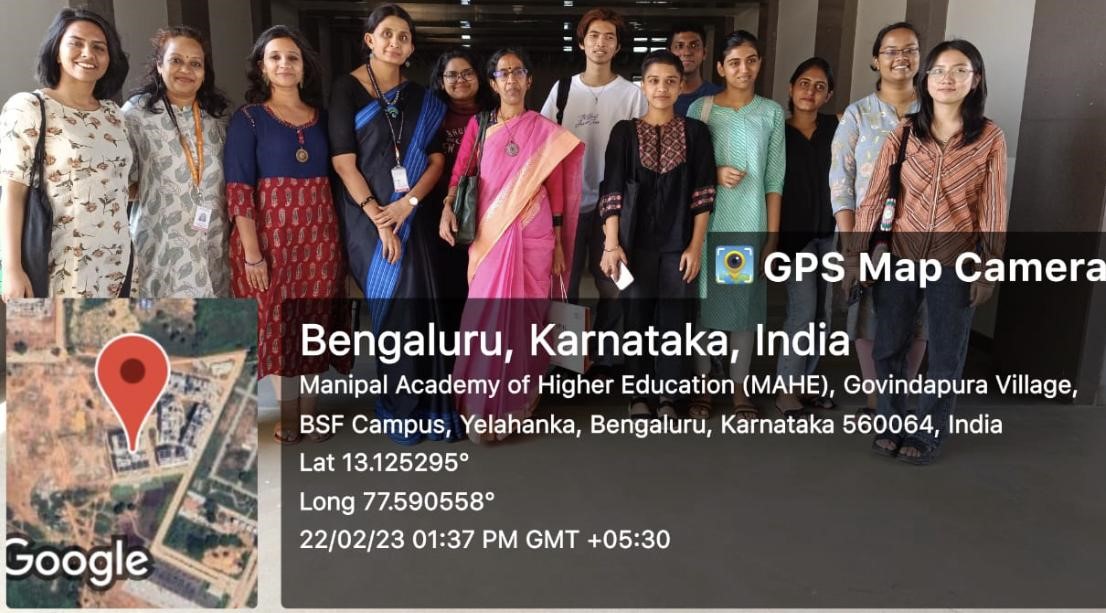Start Date: February 22, 2023
End Date: February 22, 2023
The Guest Lecture titled ‘Social Relations and Cultural Tensions in Arundhati Roy’s Writings’ was taken by Dr. Prakrithi H.N. from Jyoti Nivas Autonomous College. She began the talk by introducing Arundhati Roy’s first novel The God of Small Things and how it described casteism among the South Indians. Most of the characters are Syrian Christians who followed the caste system and suppressed the lower caste. The second novel The Ministry of Utmost Happiness (2017) had a long gap of 20 years. Between these two novels she wrote a lot of essays on social and political issues.
She explained how Roy used the economic prejudice throughout the novel, only after establishing people’s democracy and completing the anti-imperialist, anti-feudal, anti-monopoly capital tasks can the Indian people advance towards socialism. This ideology can detail only the democratic revolution in political development. The real essence of socialism must provide all people food security, full employment, universal access to education, health and housing among all people without the prejudice notion. It meant economic, political and social empowerment not only mere development of the people and vastly improving the living condition of workers, peasants and hitherto marginalized sections.
She also talked about how the first half of The Ministry of Utmost Happiness is told through the point of view of Anjum, a transgender woman and former sex worker who was born intersex. Exploring through Anjum’s eyes, she navigates gender identity and by portraying her trans identity in a positive and nuanced light, Roy challenges not only the idea of a gender binary, but also other artificial forms of social division—particularly nationality and religion. While Roy in no way seems to argue that being a Hijra is a privilege, she does highlight some ways in which Anjum’s inability to participate in the gender binary has special, positive effects.
It was an enriching session that allowed the students to know more about the super structural ideologies like religion, democracy, socialism lost its own meaning in modern India. The subversion of power of the minority is not to become a dominant group but to escape from the exploitation of canonical societies of majority and vice-versa majority people wants to regain the power to become a dominant group in the social framework. This disturbs the harmony of the country.
The students had a fruitful interaction with Dr. Prakrithi H.N. regarding their perspectives on the choice of characters in Roy’s writings and how it reflects the socio-political realities of the country. The resource person talked about how Roy gives voice to the voiceless even without assigning them any specific roles. The PG batch of English Language and Literature and Multimedia attended the guest lecture. The lecture definitely helped the students to gain a view of how Arundhati Roy’s writings are an important structure to understand the social realities in India.




